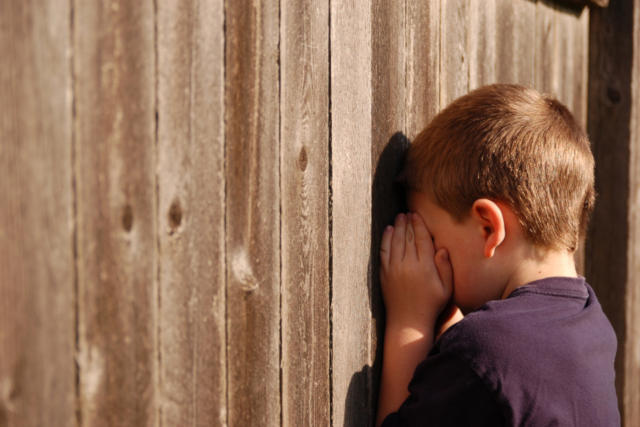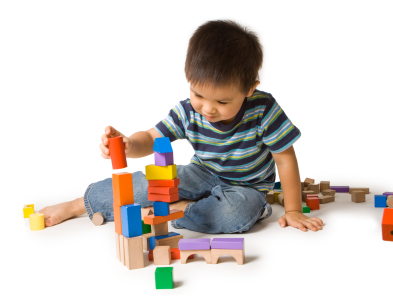The term special needs can be taken as an umbrella term for many medical diagnoses such as Autism Spectrum Disorder (ASD), Down Syndrome, Attention Deficit Hyperactivity Disorder (ADHD) or Cerebral Palsy, which may result in any combination of the following, at differing levels of severity:
- Developmental delays
- Physical or cognitive impairments
- Psychiatric or emotional issues
- Learning disabilities

Strengths and limitations, needs and aversions
As with any other individual, a child with special needs will come with their own personality, interests and aversions, as well as strengths and weaknesses. It is up to the people closest to the child to explore what these may be. Doing so will not only improve the child’s (and family’s) quality of life, but also show those involved how to best support their growth and development, be it the family members, teachers, or therapists.
Knowing the child’s physical or cognitive needs can help caregivers, therapists and educators frame their approaches for the child to be in the best possible state of mind to attend, learn, and participate in their learning environment so that they can be ready to learn. Knowing the child’s talents or interests will equip professionals with the tools to care for and teach them.
A child with special needs may not have the emotional or cognitive maturity to tolerate topics or tasks which are not within their areas of interest. By packaging what the child needs for their development within their area of interests will make teaching and learning more effective.
⇒ Related Read: Raising A Child With Special Needs
How can parents, family members, professionals and the community understand and genuinely care for a child who is different from the rest?
To illustrate better, here are some examples:
- Your child is unable to sit still
In the majority of cases, this behaviour is not within their control. Rather than being “naughty”, the inability to stay seated may well be a direct result of their condition: perhaps they need to keep moving in order to stay calm in stressful situations. Knowing why this is the case would allow us to support this child’s learning by employing strategies such as replacing a chair with a therapy ball so the child can bounce in place, thereby allowing them to focus.
- Your child “doesn’t listen”
Perhaps this is because they understand pictures much better than spoken words. If so, communicate or teach with drawings rather than by talking. Your child “refuses to do work” such as fine motor work via tracing worksheets. If so, replace the worksheet with one that contains pictures of their favourite cartoon character.
- Your child “doesn’t want to talk”

Is it because they are not ready for it, or because there aren’t sufficient motivating factors such as a clear need to speak? Perhaps your child is good at drawing. If so, they can illustrate their day at school instead of using words to tell you.
One of the most important and difficult aspects in caring for a child with special needs is acceptance, and then the adjustment of hopes and expectations. Knowing what we know about their condition and associated impacts on their physical, cognitive and emotional development, and also what is realistic?
Unrealistic expectations of the child increase the risk of frustration, disappointment and stress, which might, in turn, affect everyone’s quality of life. Determining what realistic is for each child usually requires in-depth discussion with healthcare professionals as well as a good amount of reflection and instinct on the part of their caregivers.
Challenges faced by children with special needs
Children with special needs face many challenges in their daily life which typically-developing children may not. The following is a summary of three areas in which children of special needs may have difficulties with.
- Social
Children with special needs may experience difficulty in communicating and playing with their peers. They may not understand the ‘unspoken’ social rules that you and I know intuitively. For example, not knowing the importance of looking at the person when talking to them may result in difficulties in making friends. They may also have difficulty integrating into their class because they exhibit disruptive behaviours such as table banging or sudden shouting.
⇒ Related Read: How Do Children With Autism Communicate?
- Activities of Daily Living (ADL)
ADLs are basic tasks we do every day such as going to the toilet and getting dressed. For most children, these tasks are learnt relatively easily and become part of their daily routine. For children with special needs, these activities might be more challenging for them to complete due to physical and/or cognitive limitations. They may require therapy to learn to dress themselves, or to sequence the steps involved in brushing their teeth.

- Academics
Children with special needs learn differently from most children who are typically-developing. Often they need to be placed in a conducive environment that addresses their needs and taps into their strengths to facilitate their learning.
- Challenges faced by caregivers
Parents of children with special needs have to deal with a number of challenges. Even though each child is different, there are some common issues their caregivers face. You need to understand, attune yourself to, and then manage the physical and emotional needs of your child, whilst possibly managing various medical appointments and financial burdens. If you have other children, you may feel pulled in different directions and possibly feel like you are neglecting them.
You may find it difficult to reconcile your hopes for your child with how they are. You may feel isolated from the community or even from friends and fellow parents because your child is perceived as different. Taken together, you may feel angry, overwhelmed, guilty, incompetent and isolated. It is important that you are aware of these emotions and address them as soon as possible so that you can better care for your child.
Supporting Children With Special Needs
Other than providing unconditional love and support, parents should learn to accept the child for who they are. Look past their limitations and see their strengths. What is my child good at? What do they like? How can I capitalize on that?
There are currently 20 Special Education (SPED) schools in Singapore that are driven to equip children with special needs with the knowledge and skills to lead independent and meaningful lives. More information about the schools can be found on the Ministry of Education.
Speech Therapists, Occupational Therapists, and Physiotherapists are professionals who can provide additional interventions for children with special needs in terms of communication, ADL, and physical limitations respectively.
Support for parents
Understand your limitations. It is alright to take a break and to seek additional support from relatives or friends. It is important to have some time for yourself to pursue your interests: you may consider arranging for caregiver reprieve. Sometimes talking to people who are in similar situations might help; parent support groups are available in Singapore. One such group is organized by the Rainbow Centre.
This article was first published in The New Age Parents e-magazine.
* * * * *
Like what you see here? Get parenting tips and stories straight to your inbox! Join our mailing list here.
Want to be heard 👂 and seen 👀 by over 100,000 parents in Singapore? We can help! Leave your contact here and we’ll be in touch.

























































Leave a Comment: